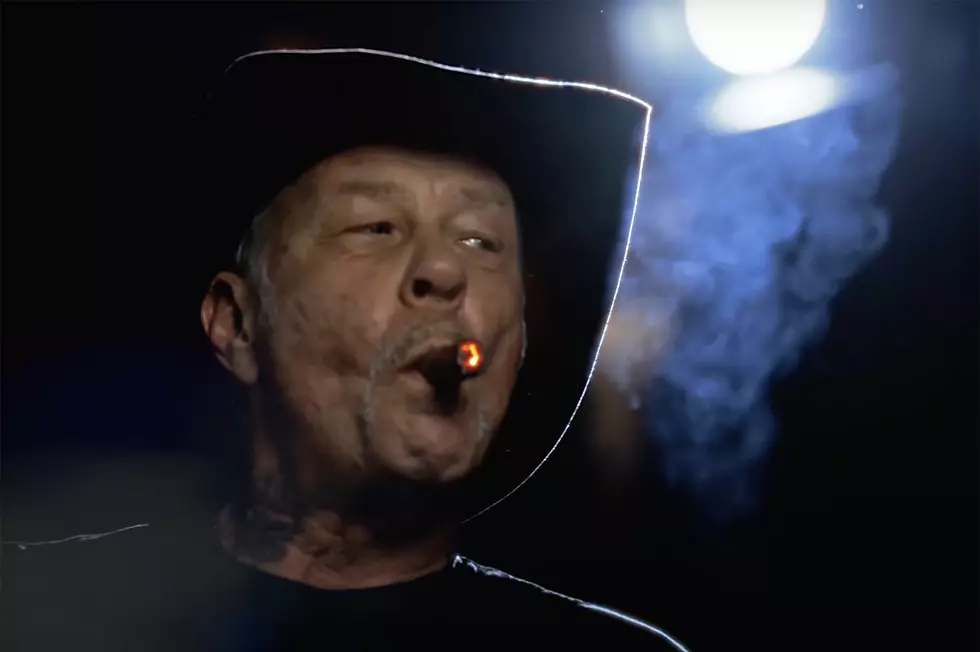
Why Metallica Wanted Black Album to Copy AC/DC’s ‘Back in Black’
Metallica guitarist Kirk Hammett said the band set out to make the 1991 self-titled LP –also known as the Black Album – its own take on AC/DC's classic Back in Black.
He and drummer Lars Ulrich recalled the challenges of moving into the new decade as the grunge revolution began and they struggled to find common ground with producer Bob Rock.
“It wasn’t easy to make as we wanted a certain sound on that album,” Hammett told Uncut in a recent interview. “We wanted everything to be the best it possibly could be, sound-wise, song-wise and performance-wise … so we went in and – I’ll probably be the first person to mention this – we wanted to come up with a Back in Black, an LP stacked with singles … songs which sound like singles but aren’t.”
Ulrich said the band felt it had taken the music played during the '80s as far as it could go. He said they needed a “reset,” so "we sat down and thought about the Misfits, AC/DC and the Stones. … The new challenge was to write shorter songs. A little more bounce, to make the music more physical than cerebral.”
Hammett reflected that while the grunge movement “changed the look and style of a lot of bands, and how bands should be at the time,” that didn't affect Metallica in any negative way. “I’d been listening to the first Soundgarden album since 1987,” he said. “I didn’t think of it as grunge so much as Sabbath-y. … Grunge was calling foul on these other bands, but because we were ourselves, we weren’t scrutinized.”
One of the biggest issues was changing their working methods to accommodate producer Rock. Noting that they’d “never been in the studio with someone who was challenging us in the way he was,” Ulrich said, "The good news was Bob was very encouraging of us expanding our processes. The bad news was we were not very open to having anyone tell us what to do. When we walked out of the studio a year later with the Black Album in our pockets, I don’t think any of us thought we’d see each other again. But we ended up spending the next 10-12 years making records together.”
The drummer noted that it "was a love affair, but it got off to a rocky start. But thankfully he pushed and challenged us. He didn’t accept our refusal to be experimental and to cast the net wider.”
Metallica Lineup Changes: A Complete Guide
More From Ultimate Classic Rock









